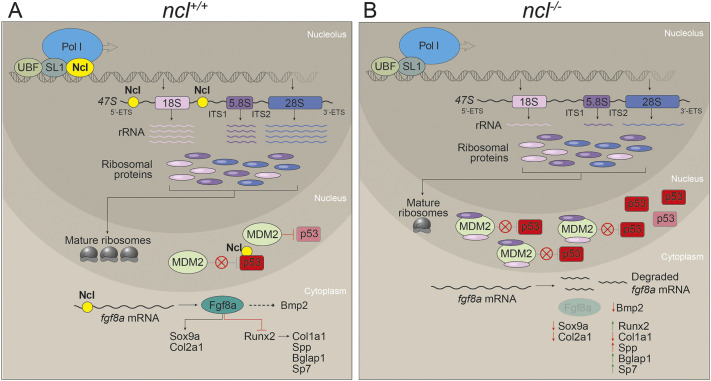Fig. 7.
Nucleolin regulates rRNA transcription and fgf8a mRNA stability. (A) In wild-type zebrafish embryos, Nucleolin is required for rRNA transcription as well as processing. The rRNA transcripts are assembled together with ribosomal proteins to make ribosomes. Meanwhile, Mdm2 binds to and ubiquitylates p53, which results in p53 proteasomal degradation. Nucleolin binds to and stabilizes the p53 protein, thereby acting antagonistically to Mdm2. Furthermore, Nucleolin binds to and stabilizes fgf8a, which results in Fgf8a- and Bmp2-regulated chondrogenesis and osteogenesis, leading to proper craniofacial development. (B) In ncl−/− embryos, the absence of Nucleolin results in reduced rRNA transcription and possibly a free pool of ribosomal proteins that bind to Mdm2. This limits Mdm2 binding to p53, resulting in a temporary increase in p53. However, owing to the lack of Nucleolin in the cell, the p53 protein and fgf8a mRNA have reduced half-lives. This results in misregulated chondrogenesis and osteogenesis, leading to cranioskeletal defects.

